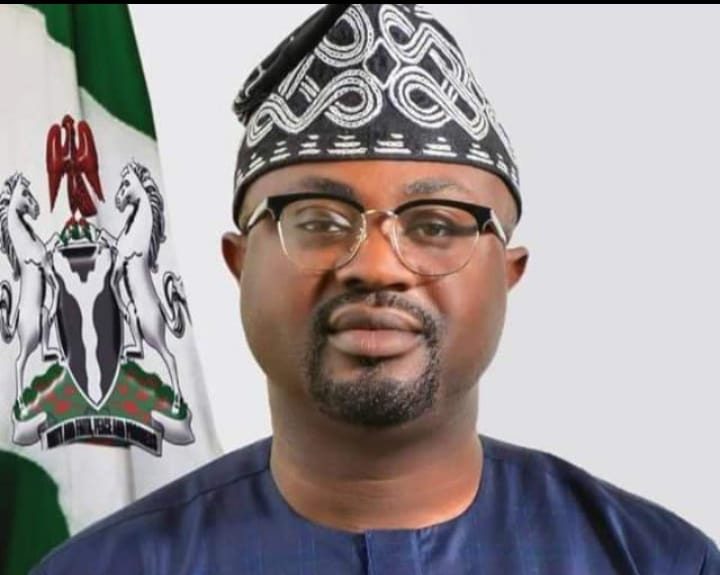Health
Nigerian Government inaugurates Working Committee for healthcare provision fund
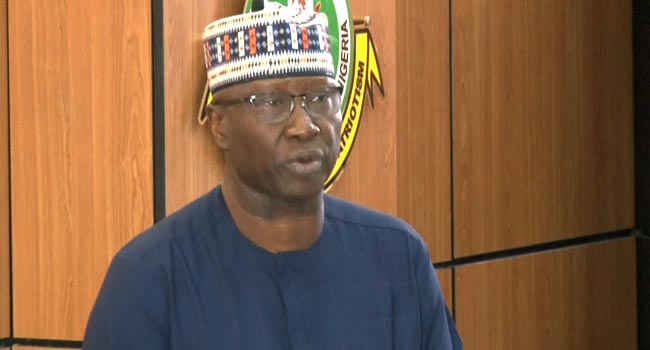
The Federal Government has inaugurated a joint working committee of the health care provision fund.
The Committee was inaugurated by the Secretary to the Government of the Federation (SGF), Boss Mustapha on Tuesday in Abuja, according to the News Agency of Nigeria.
“The Fund was established within the National Health Act of 2014 to increase the overall financing to the health sector and to help improve access to primary health care services for all Nigerians, especially the poor and vulnerable.
“Specifically, the fund was to support the provision of a basic minimum package of health services to citizens; provision of essential drugs, vaccines, and consumables for eligible primary health care facilities; provision and maintenance of facilities, equipment and transport for eligible primary health care facilities.
“Development of human resources for primary health care; and emergency medical situations, such as Ebola and COVID-19.
The SGF further explained that the fund was financed by the federal government’s annual grant of not less than one per cent of its Consolidated Revenue Fund (CRF).
He added that grants by international donor partners and funds from other sources also financed the fund in part.
The disbursement of the Fund, he added, would be 50 per cent for the provision of a basic minimum package of health services to citizens, through eligible primary or secondary health care facilities promoted under the National Health Insurance Scheme (NHIS).
“45 per cent would be disbursed through the National Primary Health Care Development Agency to be utilized for the following: 20 per cent to provide essential drugs, vaccines, and consumables for eligible primary health care facilities.
“While 15 per cent will be for the provision and maintenance of facilities, equipment and transport for eligible primary health care facilities.
“10 per cent for the development of human resources for primary health care, as 5 per cent of the fund shall be used for emergency medical treatment to be administered by a committee appointed by the National Council on Health,” he said.
The SGF noted that access to the funds would be contingent, amongst others, on the provision of 25 per cent counterpart funding by states and local governments.
He acknowledged that President Muhammadu Buhari had approved the operationalisation of the basic healthcare provision fund (BHCPF) 2018/2019 budget with an appropriation of N55.1 billion.
Mustapha said in 2020, N44.5 billion was earmarked but revised to N25.5 billion (a decrease of more than 42.5 per cent) due to a shortfall in revenue occasioned by COVID-19 and oil price volatility.
The SGF noted that the 2021 appropriation bill recently presented to the National Assembly proposed the sum of N35.03 billion for the fund through statutory transfer.
He commended Buhari’s commitment to ensuring that quality basic health care service was delivered to the majority of Nigerians.
The SGF stressed that “It is also in alignment with one of the main objectives of the Economic Recovery and Growth Plan – investing in the Nigerian people.
“Furthermore, the BHCPF is critical to achieving Priority six (improving health, education, and productivity of Nigerians) of the nine priority areas guiding the policy directions of the Buhari administration over the years.
He expressed sadness that in spite of the President’s demonstrated commitment over the years, implementation of the fund had remained a challenge.
“Millions of Nigerians across the 36 States and the FCT, who could have been potential beneficiaries of the Fund remain without access to basic health care, six years after the enactment of the Act.
“One of the significant manifestations of the failure of the BHCPF to gain traction was the suboptimal state of our basic healthcare system when COVID-19 pandemic hit the country.
“More importantly, the Fund has been structured to impact on the poorest of the population by addressing preventable diseases and improving primary health care services at the grassroots.
“Therefore, the slow implementation of the Fund is fast becoming a missed opportunity for this administration to improve the quality of life for the 100 million Nigerians that should come out of poverty,” he said.
The SGF, however, expressed optimism that the committee would, as a first step towards establishing a proper stakeholder coordination mechanism, liaise with the Bureau of Public Service Reforms.
He said that their objectives would be to get the highest level of political buy-in for the implementation of the fund and to bring stakeholders up to speed on the status of the Fund.
Mustapha urged the committee to have a shared understanding of challenges and bottlenecks in the process of implementation and agree on recommendations as action plans to fast-track the progress of implementation.
He charged them to establish the need for the stakeholder coordination framework and other mechanisms to sustain momentum and submit a final copy for approval by the steering committee of reforms.
Earlier, in his speech, the Director-General, Bureau of Public Service Reforms, Mr Dasuki Arabi, said it had been observed that several factors had been attributed to the slow implementation of the Fund.
He named gaps in the enabling Act to include silence on initiation, administration and governance of the BHCPF, weak buy-in from the states, low state of states’ readiness, and inter-agency rivalry.
Abari also said that the National Primary Health Care Development Agency, one of three gateways for disbursement, was statutorily mandated with developing operational guidelines for the entire Fund.
He said that this potentially posed challenges with cooperation from the two other gateways, amongst others.
Arabi said that the Bureau of Public Service Reforms (BPSR), with the support of the Foreign, Commonwealth and Development Office (FCDO)-Partnership to Engage, Reform and Learn (PERL), had undertaken an analysis of the current situation of the Fund.
According to him, this was in order to uncover the underlying issues and seek a way forward for faster implementation.
He said that the analysis identified the major cause of the issues to be a lack of synergy and agreement amongst stakeholders on how to resolve issues and move the implementation forward for the sake of the citizens.
The Director-General also said the committee was constituted to provide an effective stakeholders coordination mechanism towards the actualization of the Fund.
Mr James Sule, Permanent Secretary, Cabinet Affairs, Office of the SGF, in his remarks, described health as wealth and good health promotes development for any nation.
He urged the committee to ensure that a good job was done to ensure that healthcare in Nigeria could improve and address shortcomings that lead to Nigerians leaving the country to seek medical attention abroad.
Responding on behalf of the inaugurated committee members, Mr Joseph Umaru, Federal Facilitation Manager, Partnership to Engage, Reform and Learn, said the team would ensure that the best was delivered.
Umaru said the committee would work with the present administration’s desire to ensure that people, most especially those at the grassroots and the vulnerable, were carried along in developmental programmes.
The News Agency of Nigeria (NAN) reports that members of the committee were drawn from the public and private health sectors, NGOs with health practitioners, the House of Representatives and Senate committees on healthcare services.
Others were from the ministry of budget and national planning and ministry of finance. (NAN)
Health
First Lady directs establishment of PHC in Sauka FCT to combat TB
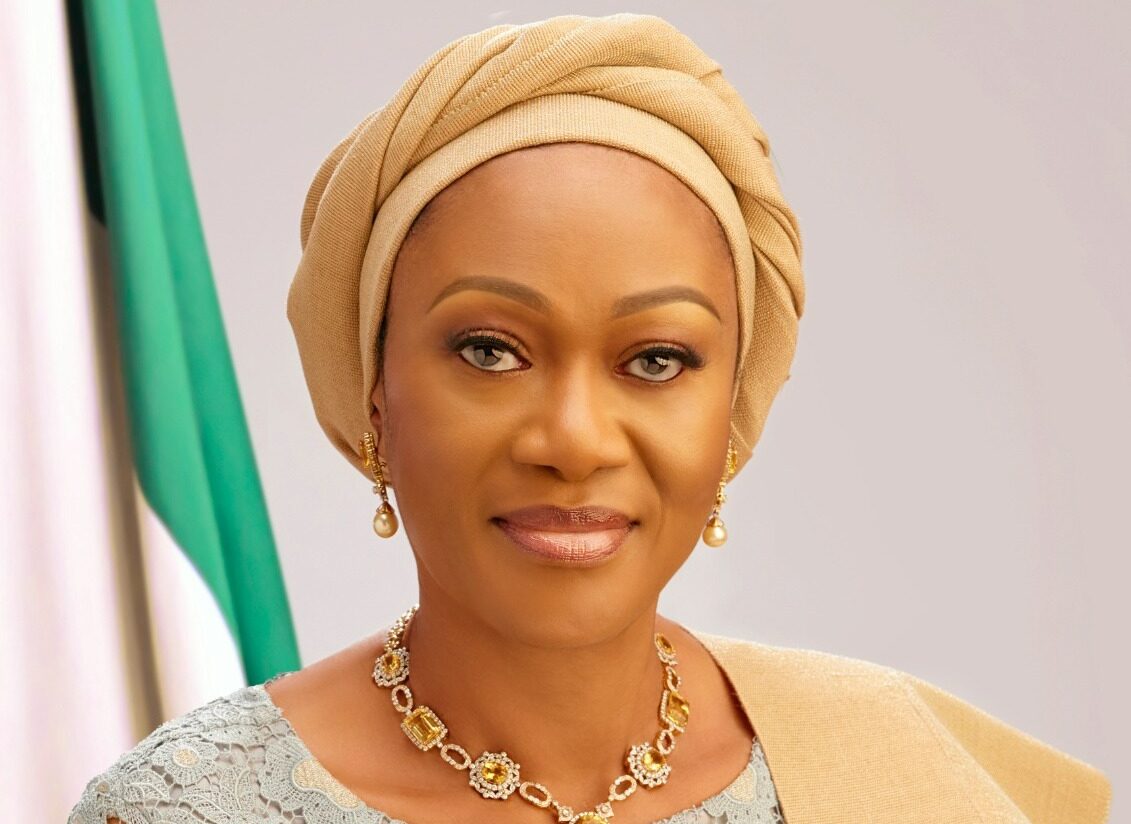
The First Lady of Nigeria, Mrs Oluremi Tinubu, has directed Dr Adedolapo Fasawe, Mandate Secretary of the FCT Health Services and Environment Secretariat, to oversee the establishment of a Primary Healthcare Centre in Sauka, FCT.
A statement issued by the Special Adviser to the Secretary, Bola Ajao, on Wednesday highlighted that the initiative aimed to strengthen healthcare services in the region.
It also emphasised the goal of combating tuberculosis (TB), with support from FCT Minister, Mr Nyesom Wike.
According to the statement, Mrs Tinubu, who also serves as the Global and National Stop TB Champion, made the announcement at an event in Sauka, FCT, to commemorate World Tuberculosis Day 2025.
The event was organised by the Federal Ministry of Health in collaboration with the FCT Health Services Secretariat, Stop TB Partnership Nigeria, the World Health Organisation (WHO), and other partners.
During her speech, the First Lady emphasised the importance of grassroots interventions in the fight against TB.
She noted that the event themed, “Yes! We Can End TB: Commit, Invest, Deliver,” had been locally translated to “We Fit Run Am; A Collective Call for Action Against TB” to better resonate with the community.
“To support the fight against this communicable disease, I will not only donate N1 billion but also approve the establishment of a Primary Healthcare Centre in Sauka Community.
“This initiative aligns with President Tinubu’s Renewed Hope Agenda for an efficient healthcare system,” the First lady stated.
The First Lady added that Fasawe would oversee the project’s implementation with the backing of the dedicated FCT Minister, Wike.
She further explained that the new facility would serve as a critical hub for TB detection, treatment, and general healthcare services, ensuring that residents received timely and quality medical care.
In spite of TB being preventable and treatable, the First Lady pointed out that it remained a significant public health challenge in Nigeria, which ranked among the countries with the highest TB burden globally.
“This underscores the urgent need for improved healthcare services and stronger community-based interventions.”
In her response, Fasawe commended the First Lady for her unwavering dedication and strong support in the fight against TB elimination.
She also acknowledged the efforts of FCT healthcare workers, whose hard work had contributed to significant improvements in the health system.
“The establishment of the new Primary Healthcare Centre in Sauka is a significant step toward enhancing healthcare services, improving TB control, and ensuring accessible healthcare for all in the FCT,” Fasawe affirmed.
The event also featured an exhibition stand by the Public Health Department of the FCT, where attendees were provided with free TB testing.
Key stakeholders in attendance included Hajiya Nana Shettima, Wife of the Vice President; Members of the National Assembly; Dr Iziaq Salako, Minister of State for Health; and Mrs Adekemi Nanpad, Comptroller General of the Nigeria Immigration Service.
Also present were wives of the Federal Executive Council members, Dr Walter Kazadi Mulombo, WHO Country Representative, and many others.
Health
Kano Govt pledges quality healthcare in custodial centres
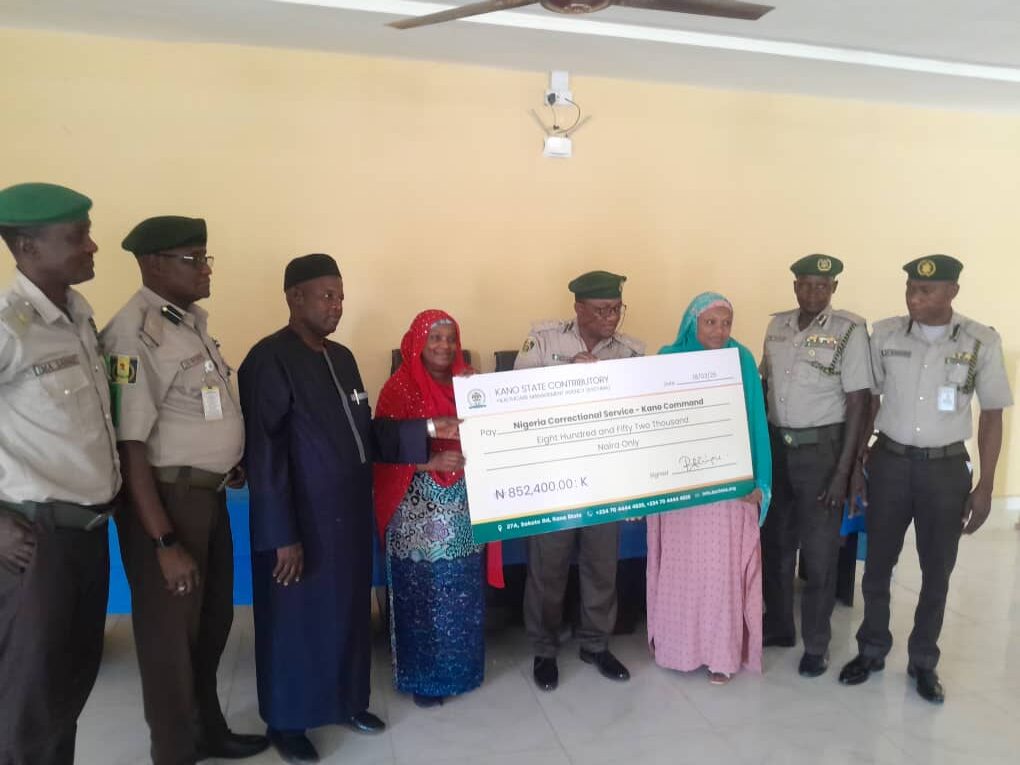
The Kano State Government has pledged its commitment to quality healthcare services for inmates in custodial centres across the state.
The Executive Secretary of the Kano State Contributory Healthcare Management Agency (KSCHMA), Dr Rahila Aliyu-Mukhtar, made the pledge while presenting the allocation of a monthly capitation of N852, 400 to support medical services for inmates in custodial centres.
She lauded Gov. Abba Kabir-Yusuf, for supporting vulnerable individuals and prioritising healthcare for inmates.
The executive secretary also commended the Kano command of the Nigerian Correctional Service for its support and cooperation.
She commended Kano for being one of the first states to enrol inmates in a structured healthcare scheme.
Responding, the Controller of Corrections, Kano State Command, Ado Inuwa expressed appreciation to the state government for its unwavering support in the enrollment of inmates under the healthcare services scheme.
He assured that the allocated funds would be utilised judiciously to cover essential medical treatments and emergency care for inmates.
Inuwa lauded Aliyu-Mukhtar for her zeal, determination and commitment to humanity, particularly in ensuring that inmates have access to healthcare services.
NAN reports that on Dec. 31, 2024, the state government approved the enrolment of inmates in custodial facilities into the State’s Health Contributory Scheme, ensuring they now enjoy health insurance coverage.The scheme provides inmates with access to basic and comprehensive healthcare services while in custody.
Headlines
NAFDAC strengthens regulations to combat antimicrobial resistance in Nigeria
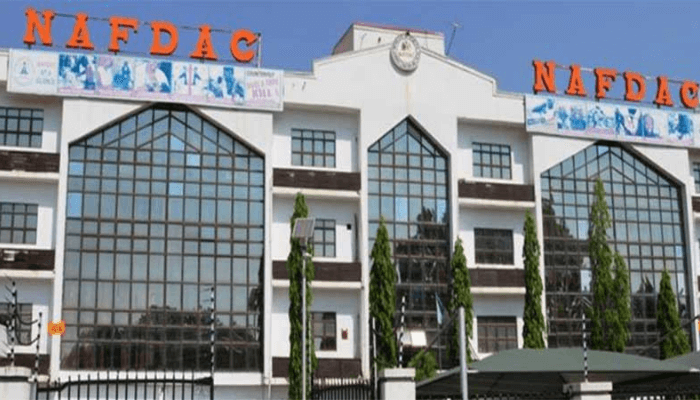
The National Agency for Food and Drug Administration and Control (NAFDAC) has intensified its efforts to combat Antimicrobial Resistance (AMR) in Nigeria by implementing stricter regulations and surveillance measures.
Dr Tunde Sigbeku, Deputy Director and AMR-OH Focal Person at NAFDAC, said this on Thursday in Lagos.
Sigbeku spoke during a five-day training session for journalists, civil society organisations (CSOs) and community-based organisations (CBOs) focused on AMR.
The News Agency of Nigeria (NAN), reports that the training was organised by the Fleming Fund Country Grant (FFCG II).
The project is supported by the UK Government’s Foreign, Commonwealth and Development Office (FCDO).
Sigbeku highlighted the dangers of AMR, emphasising that it poses a severe threat to human, animal, and environmental health.
He said that NAFDAC had implemented several policies, including banning the use of antibiotics as growth promoters in livestock and fish production.
“AMR is real and with us in Nigeria. We have cases in hospitals, including babies born with colistin resistance, and it is also present on farms.
“We are taking steps like prohibiting the sale of branded medicated feed in open markets.
We are also restricting the use of certain veterinary drugs in food-producing animals, such as Carbadox, Nitrofural, and Olaquindox.
“We are strengthening port inspections to detect substandard and falsified antibiotics using advanced technologies like TRUSCAN and the Mobile Authentication Service (MAS),” he said l.
According to him, recognising that AMR requires a multi-sectoral approach.
He said that the agency had established collaborations with international and national stakeholders.
He listed such stakeholders to include the World Health Organisation (WHO), the Food and Agriculture Organisation (FAO), and the Fleming Fund.
“NAFDAC is also monitoring the importation and use of human and veterinary antibiotics to ensure compliance with national regulations,” he said.
Sigbeku stressed the need for continuous public awareness and collaboration with research institutions.
“We must educate, advocate, and act now.
“Increased surveillance, research, and policy enforcement are crucial to preventing a post-antibiotic era where common infections become deadly,” he said.
As Nigeria joins the global fight against AMR, he urged healthcare providers, farmers, and the general public to use antibiotics responsibly to preserve their effectiveness for future generations.
NAN recalls that the FFCG II has been instrumental in Nigeria’s fight against AMR.
Managed by Management Sciences for Health (MSH), the project collaborates with the One Health Ministries.
They are the Federal Ministry of Health and the Federal Ministry of Agriculture and Food Security (FMAFS), as well as the Federal Ministry of Environment.
The aim is to implement a coordinated, multisectoral approach addressing AMR across human, animal, and environmental health.
Aligned with Nigeria’s FFCG Phase 2 Country Investment Strategy (CIS), the project focuses on four priority areas:
Producing quality AMR data, analysing data effectively, sharing analysis with decision-makers and promoting sustainable investment to counter AMR.
Through these efforts, the project plays a crucial role in strengthening Nigeria’s response to AMR, a growing public health concern.
-

 Headlines4 years ago
Headlines4 years agoFacebook, Instagram Temporarily Allow Posts on Ukraine War Calling for Violence Against Invading Russians or Putin’s Death
-

 Headlines4 years ago
Headlines4 years agoNigeria, Other West African Countries Facing Worst Food Crisis in 10 Years, Aid Groups Say
-

 Foreign4 years ago
Foreign4 years agoNew York Consulate installs machines for 10-year passport
-

 News1 year ago
News1 year agoZero Trust Architecture in a Remote World: Securing the New Normal
-

 Entertainment3 years ago
Entertainment3 years agoPhyna emerges winner of Big Brother Naija Season 7
-

 Headlines2 years ago
Headlines2 years agoNigeria Customs modernisation project to check extortion of traders
-

 Entertainment2 years ago
Entertainment2 years agoMovie download platform, Netnaija, announces closure
-

 Economy2 years ago
Economy2 years agoWe generated N30.2 bn revenue in three months – Kano NCS Comptroller


